Features Of Parliamentary System of Government: Regardless of the fact that lots of country in the world practice the parliamentary system of government, many countries and citizens of those country, know little or nothing about parliamentary system of government. This article will be explain what parliamentary system of government and its features.
Recommended: Characteristics of a good constitution
Parliamentary System of Government
Parliamentary system of government is a democratic system of government where the executive obtains its power and democratic legitimacy from the legislative branch of government which is known as the parliaments to which the executives are accountable to. The head of state is different from the head of government, this is opposed the presidential system where both powers are infused on one person known as the president, and the democratic legitimacy of the executives are not derived from the legislature.
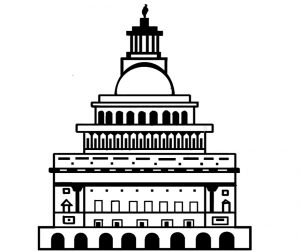
In this system of government, the executive is an integral part of the legislature. An example of such is the British system of government, where parliamentary system reigns supreme.
Recommended: How to be a good conversationalist explained
Features of Parliamentary System of Government
1. Supremacy: Supremacy is the state by which a thing is supreme (above) to all other power, authority etc. One cannot discuss the Parliamentary System of government and skip over the supremacy of the legislatures, and it is in fact imbedded in the definition.
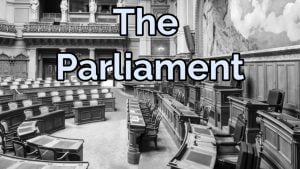
The legislatures in the Parliamentary System are the most supreme as it controls the executives and any other branch of government. The legislatures executes its affairs through a unicameral (one house) legislature or a bicameral (two houses) legislature, however, it is called Parliament.
The legislatures are made up of elected representatives whom are being elected by the citizens of the country to represent their various constituencies or regions. Regardless of the powers listed by the constitution of the country as the duties of the legislatures, the primary duty of the legislatures is to make and pass laws.
Also see: Major types of constitution explained
2. Term of Office of the President: In a parliamentary system of government, the term of office of the executive is not for a fixed term unlike the presidential system where the executives are elected for a few years with the option of renewing the office for another fixed term.
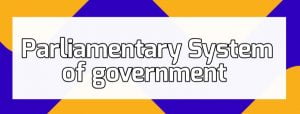
When the executive’s in a parliamentary system no longer enjoy the total support of the legislative body, the legislature may pass a vote of no confidence and remove the president from office.
3. Fusion of Powers: The Parliamentary System of government no doubt bases its practice on the fusion of powers between the legislature and the executive, this means that the executives are also part of the parliament. The Prime Minister can also appoint the President (executive) in a state where the parliamentary system is not based off royalty, the Prime Minister is in the position to appoint the president.
During the states election, members of the parliament are directly elected by the people into the legislative house. The leader of the majority party members in the house automatically becomes the Prime Minister and the leader of the second majority in the house assumes the ceremonial powers of the president.
However, in some countries, the Prime Minister appoints another member of his party to become the president.
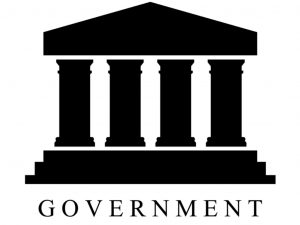
Also see: Most Dangerous Forests in The World 2022
4. Collective responsibility to the Legislature: The legislatures could be called the boss, yes they are, though not above the constitution but they have the other arms of government answering to them especially the executive arm. Having established and appointed them into power the executives (not just the president but everyone under the president) are all accountable to the legislatures for their deeds and misdeeds in the state.
Whenever the support of the legislatures is no longer being enjoyed by the executives, they could all be forced to resign and another set is appointed as executives. It is worthy to note that this is only applicable in states where royalties are not the executives as they cannot be removed at will.
5. Dual Executive: The features of Parliamentary System of government cannot be discussed without dual executives this is because dual executives is the bed rock of the Parliamentary System of government. Dual executive which is also known as bicephalous executive can be defined as the type of executive which is being headed by two persons unlike its counterparts (presidential system) where the executive is headed by one person.
The two persons who head the executive are the president and the prime minister, head of government and the head of state. The powers of the president in a parliamentary system of government is more like a glorified president when compared to a president in a presidential system of government.
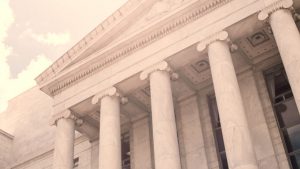
Also see: Advantages and Disadvantages of Being a Teacher
6. Powers of the Court: The Supreme Court or the House of Lords (in Britain) as the case may be is the apex court of every country. In most states that practice the Parliamentary System of government, the Supreme Court has the constitutional powers to declare a law unconstitutional.
This power is exercised when such law has been foreseen to pose violence against the constitution of the country. However, in some countries like the New Zealand and Britain, the Supreme Court do not possess such powers for judicial review, the only check from the judiciary to the legislature is the result of the next election.
Recommended: Countries with the Most Beautiful Women in Africa
7. Political Parties: With specific consideration to the rules of voting in a country, the Parliamentary System of government allows for there to be a uni-party system, bi-party system or a multiple party system in the sense that members of the parliament can be made up of members of one party depending on the country which adopted the Parliamentary System of government.
It can also be made up of candidates from two parties or members from different parties. The last party system in my opinion should be the most practiced as it encourages democracy and allow citizens to make their choice of candidate from the many options they have and it also promotes the spirit of competition amongst candidates.
8. Political Coalition: The Parliamentary System of government promotes political coalition amongst members from various political parties this being that the system consists of various political parties.
Thereby making coalition a very popular practice. Members of the opposing parties would often form a coalition which is known as a temporary union, in other to stand against the majority party. This alliance utilizes its combined resources to accomplish a common goal.
Also see: Advantages and Disadvantages of Being an Entrepreneur
9. Term of Office: The Prime Minister of the nation has no official designated term of office. He will be in office as long as the parliament is satisfied with his performance.
On the condition when it is required that the Prime Minister should be removed, the parliament will use a majority vote which is known as the vote of no confidence to remove the Prime Minister from office.
10. Making of Laws: Unlike the Presidential System of government where the President sign a bill into law, the President in the Parliamentary System of Government has no such powers. Like it has been said, he is just a ceremonial head of state.
In a parliamentary system of government, majority of the parliament’s votes passes laws in which it shall be signed into legislation by the Prime Minister who has no veto power unlike the Presidential system where the right of the president can be vetoed.
Also see: Why Democracy is considered the best system of government in the world
With lots of governments in the world, it is usually difficult to understand how each works, however, a country should be delicate and with great care decide which to practice as none is considered the best.

Edeh Samuel Chukwuemeka, ACMC, is a lawyer and a certified mediator/conciliator in Nigeria. He is also a developer with knowledge in various programming languages. Samuel is determined to leverage his skills in technology, SEO, and legal practice to revolutionize the legal profession worldwide by creating web and mobile applications that simplify legal research. Sam is also passionate about educating and providing valuable information to people.
Helpful and educative
So Nice